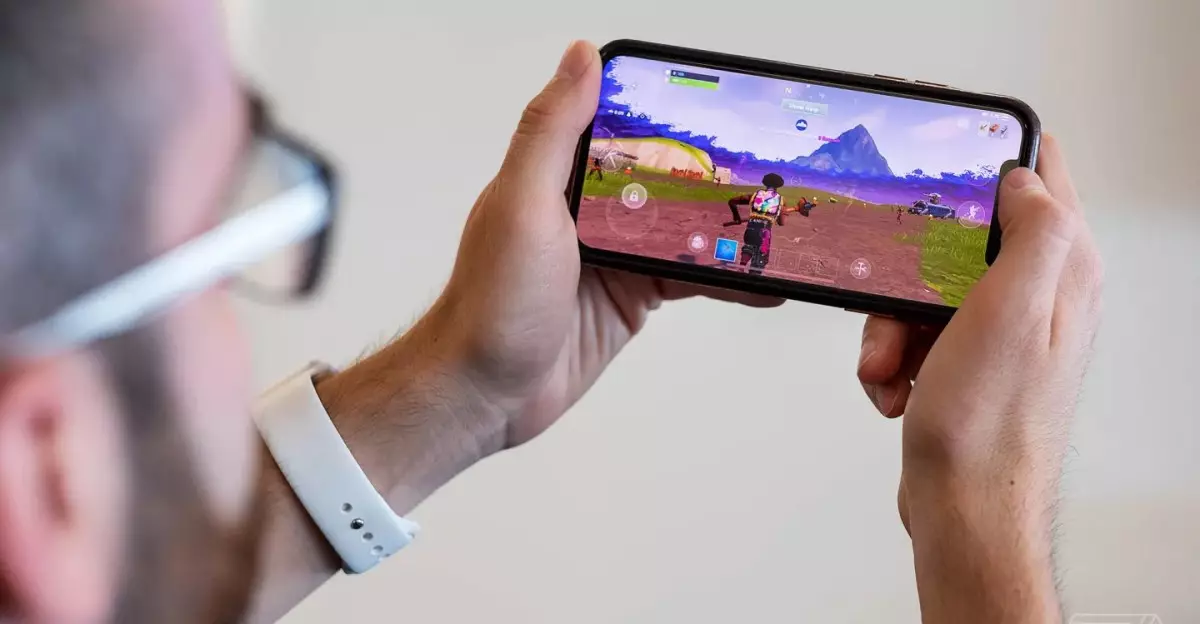In a stunning revival that not only thrills gamers but also shakes up the digital economy, Epic Games has announced that Fortnite is finally back on the iOS App Store after nearly five years of absence. This significant reintegration follows a high-profile legal battle with Apple, which began when Epic attempted to circumvent Apple’s payment processing system in 2020. By bypassing the giant’s rules, Epic opened a Pandora’s box of legal complexities and public discourse about digital marketplace fairness and developer autonomy.
For many, the return of Fortnite is not just an event; it represents a paradigm shift in how games are distributed and monetized on mobile platforms. With the fluctuating dynamics between developers and platform holders like Apple, the ramifications of this case extend far beyond Fortnite and Epic Games.
The Legal Tug-of-War
The saga started when Epic Games implemented its own in-app payment mechanism within Fortnite—a direct challenge to Apple’s 30% commission model. The ensuing Epic v. Apple court case illuminated various critical issues, including the monopoly-like control Apple holds over its ecosystem. A critical ruling mandated that Apple must let developers link to external payment systems, marking a pivotal point in this legal struggle.
Epic CEO Tim Sweeney’s subsequent “peace proposal,” requesting Apple to adopt a worldwide reduction in their commissions, underscores the strategic calculations involved. While it serves Epic Games’ interests, it also provides a roadmap for other developers who face similar challenges. The court’s decision sets a precedent that could alter the future of app development, influencing how and where apps can generate revenue.
The Impact on iOS Gaming
Fortnite’s reinstatement to the App Store is emblematic of a larger trend: developers are increasingly pushing back against traditional structures that dictate terms of engagement for digital content. In this case, the long absence truly highlights the impact a single app can have on an entire platform’s ecosystem. Apple’s reluctance to bend its rules has led to conversations about how companies operate and what it means for the future of app distribution.
Epic’s commitment to foster its payment system will likely encourage users to engage more with its ecosystem. Besides simply downloading Fortnite, new promotional strategies like offering 20% rewards will undoubtedly stimulate user participation and keep players invested in Epic’s portfolio of games. As they launch new content and seasons—like the recently unveiled Star Wars-themed update—Epic seeks to capitalize on their hard-fought victory.
Diversifying Distribution Channels
Interestingly, the return of Fortnite also signals a growing acceptance of alternative app distribution channels, such as the Epic Games Store and alternative marketplaces. While Apple continues to maintain a firm grip on its App Store, the increasing popularity of alternative platforms could portend a diversification in the way mobile games are delivered. This shift could encourage a more competitive landscape, benefitting both developers and consumers in terms of pricing and innovation.
Given how Epic has maneuvered through this complex legal environment, it raises a pertinent question: is Apple willing to adapt further? While the company stated that it has requested revisions to ensure compliance, the ongoing tension could serve as a catalyst for deeper changes in policy. If Epic’s movements galvanize further developer dissatisfaction against Apple’s tight constraints, this could spark a reckoning in how mobile ecosystems are structured.
The Future of Mobile Gaming
As fans download Fortnite once more, the excitement is palpable. However, the implications of its return stretch far beyond gameplay. This event underscores a profound moment in mobile gaming and, potentially, digital economies worldwide. The tensions between platforms and developers are likely to continue, but these clashes also present opportunities for broader discussions on fairness and accessibility in digital marketplaces.
While Epic has won a notable battle, the broader war for fair treatment within the app ecosystem is far from over. Developers worldwide will be watching closely as both sides recalibrate their strategies in the wake of this groundbreaking ruling. What we can surmise is that Fortnite’s return is not merely about a game; it symbolizes an ever-evolving relationship between creators, platforms, and consumers in the digital era.

